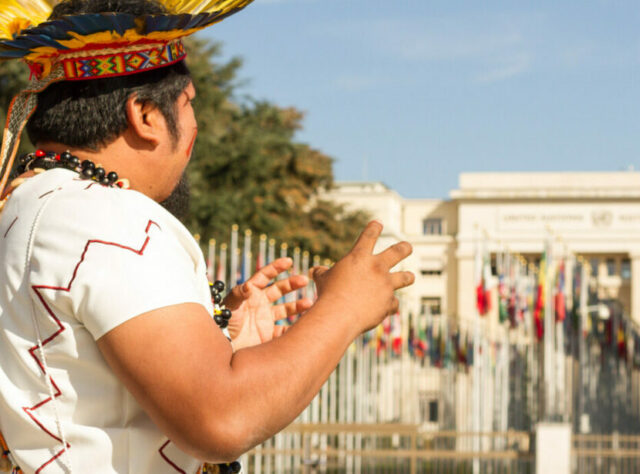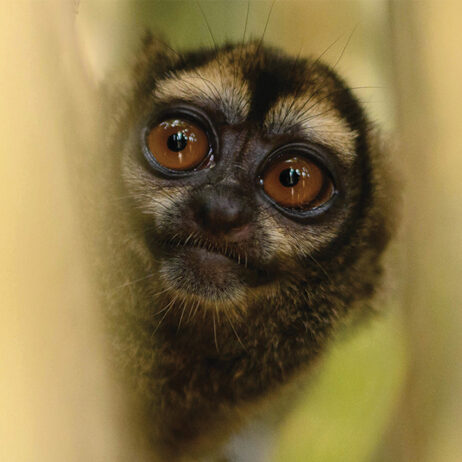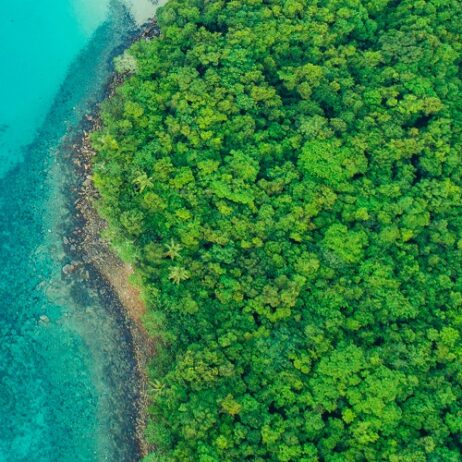
Human rights and nature's health and interconnected. Credit: Victor Barro/Friends of the Earth International (Creative Commons License)
A new report by Global Witness reveals Colombia to be the most dangerous country in the world to be an environmental activist. The findings of this research are of deep concern for all involved in the struggle to protect nature.
The non-governmental organisation has been investigating the threats, deaths and violence faced by land environmental defenders over the last 11 years. This also includes recording deaths of activists. It has recently released its report communicating its findings from last year (2022) and the findings are stark.
Lives lost in the defence of nature
At least 177 people lost their lives for standing up to defend nature from pollution, degradation, and harm. This equates to an activist being killed every other day, on average. This brings the total number of people killed rise to 1,910 since 2012. Due to a lack of systematic independent monitoring (often due to restrictions in some states on free press), there is an underreporting of incidents. The total number of cases is therefore likely to be higher.
Colombia has seen the highest number of murders to activists, with 60 people having been killed. This is almost double the number recorded in 2021. One third of these victims (35%) include Indigenous peoples. In the conservation community, we know that indigenous peoples are best suited to protect their lands. Recent research has confirmed this: compared to other areas, biodiversity is highest and declining less rapidly on Indigenous-managed lands. The fact that these people are being killed for protecting land from its degradation – often in some of the world’s most biodiverse and vulnerable ecosystems – is shameful.
Marginalised people featured heavily in the report. Afro-descendant communities, small-scale farmers, and environmental activists represent a proportion of the victims, as well as state officials, park rangers, and journalists. Lawyers, an important ally in the legal representation of nature, have been subjected to violence too. In Mexico alone, 4 of the 31 people killed in 2022 for defending land and the environment were lawyers.
Commemorating environmental activism
Global Witness have published the names of environmental defenders killed in 2022 to commemorate them and – importantly – to celebrate their activism. These names include people from Brazil, Colombia, Democratic Republic of Congo, Ecuador, Guatemala, Honduras, and India, Madagascar, Indonesia, Malawi, and Mexico, Nicaragua, Paraguay, Peru, Philippines, South Africa, and Venezuela. From this country list, Latin America presents a particularly troubling situation. Last year, over 4 in 5 of those killed were from this region. Notably, those taking action to protect land in the Amazon (especially in Brazil, Venezuela, and Peru) suffered greatly – with over one in five of the 177 killings having happened there.
The report explains that several companies based in some of the world’s richest countries, including in the UK and EU nations, have been linked to these human rights violations. Often, activists confront corporate activity happening in their communities or on their lands that they deem harmful. Whilst difficult to connect the killings to specific sectors, Global Witness has been able to link agribusinesses to 10 killings in 2022. Mining and logging have also been found responsible for 12 other killings.
It is not only fatal incidents that have been recorded. Strategies to intimidate and threaten environmental activists include criminalisation, harassment, and digital attacks to silence nature defenders.
Protect nature; protect human rights
In July 2022, the United Nations passed a resolution recognising clean, healthy and sustainable environment as a human right. To ensure these rights, Global Witness offer recommendations in its report. Amongst them, it suggests that “governments must protect defender rights, including universal rights to free, prior and informed consent, Indigenous peoples’ rights to their livelihood and culture; the right to life, liberty and freedom of expression; and the right to a safe, healthy and sustainable environment.”
These are rights that WLT wholeheartedly supports, and we believe the entire conservation community should strive to promote in its work as well.
Protecting nature is to protect life; it should not involve people risking their own in the process. As the world faces convergent climate and biodiversity crises, ensuring the human rights of those living, working and protecting nature must be at the centre of nature conservation everywhere.


